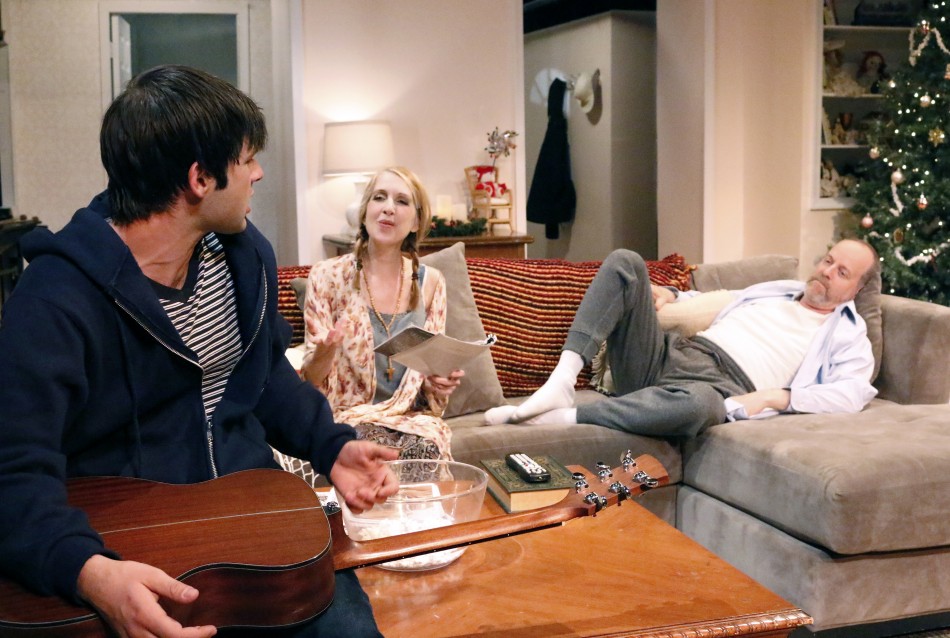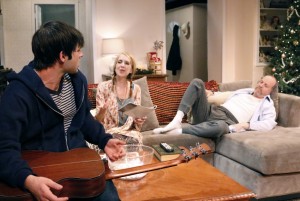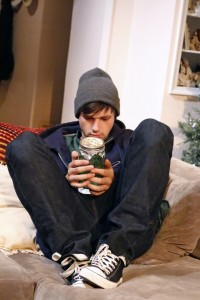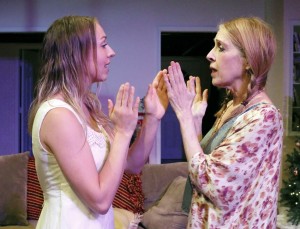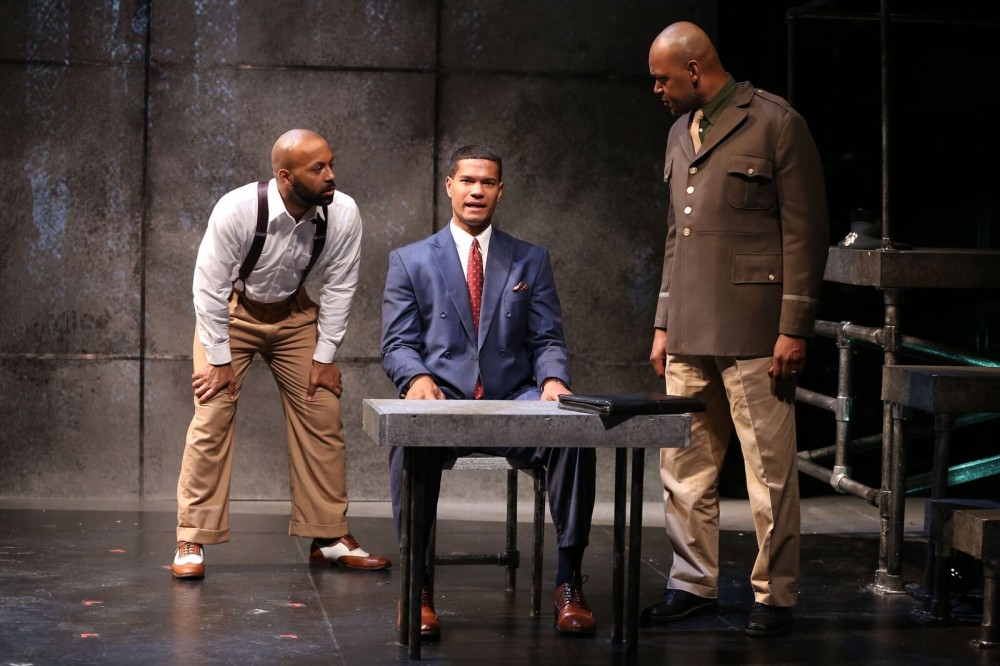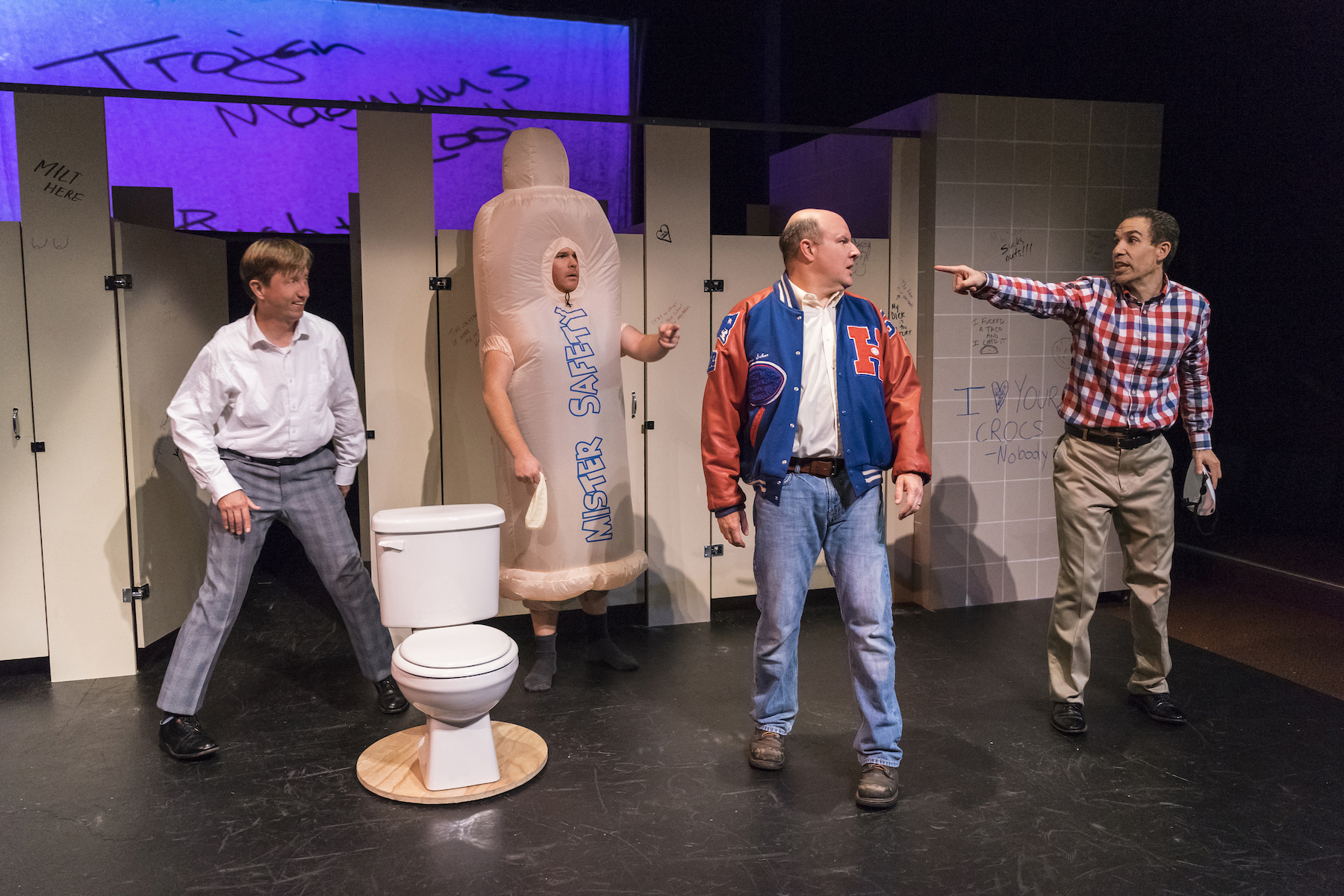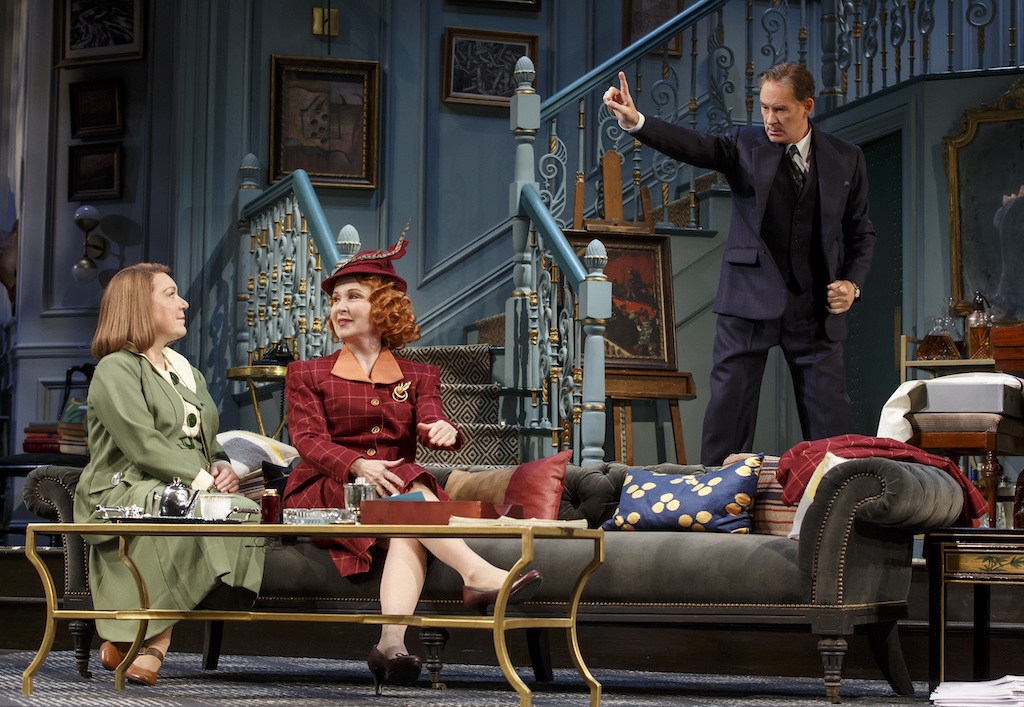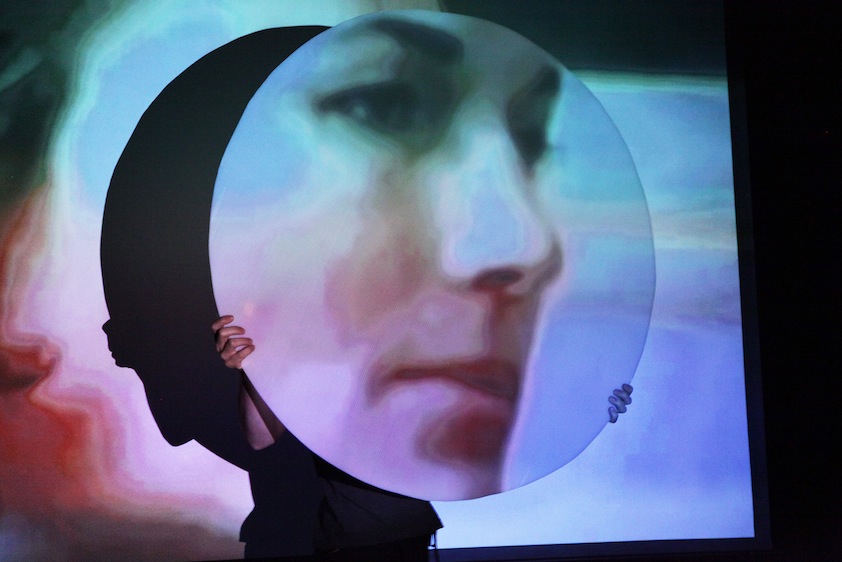Review by Beatrice Williams-Rude
“All happy families are alike; each unhappy family is unhappy in its own way,” Tolstoy noted in “Anna Karenina.”
Which brings us to Nancy Manocherian’s play “Hey Jude.” A dysfunctional family consisting of a father, with ever worsening dementia, a mother who is both delusional and the force keeping the family together, and their teenage son just back from school for Christmas break. Also very much in evidence is the mother’s younger self—a ghost of Christmas past?
The mother, Anna, brilliantly played by Deborah Offner, a still-lovely blonde, is obsessed with religion. Her younger alter-ego, Anna 2, winsome Catherine Dupont, reminds her of her salad days. No, it wasn’t “weed,” as is the case with Jude, the son, it was hashish. There was also an abortion which is key to Anna’s religiosity. She imagines she’s being punished for it and that not being able to have children is the punishment. It’s particularly painful when Jude, who was adopted, is fixated on finding his “real” mother, the very young woman who gave birth to him and put him up for adoption. Jude’s constant nagging on the subject forces Anna to ponder that path not taken and to remember the almost certainly illegal procedure she chose when the man who impregnated her got her to the doctor then disappeared.
There are generational conflicts in the form of Anna’s being fanatical about the roaches that infest the premises—she always has bug-spray at the ready, while Jude doesn’t want to pollute the environment and brings a praying mantis home to cope with the roaches, but Anna will have none of it.
The set, by Peiyi Wong, is a nicely furnished middle-class mid-20th century suburban house decorated for Christmas. The lighting, by Gertjan Houben, brings the illusion of sunlight to what is a really dark situation.
The father, Henry, is well-played by Larry Cahn. In the pivotal role of Jude, Adam Weppler, conveys the dilemma of the young man who must either come to grips with his parents and, in effect, rescue them, or escape from them.
The work is competently directed by Kira Simring. Sound design is by M. Florian Staab and the composer is Michael Dellaira. The appropriate costumes are by Rebecca Freund.
“Hey Jude” has a number of meanings. There’s the Beatles song—among Anna’s fantasies, along with speaking to Jesus and God, is a vision of Paul McCartney; there’s St. Jude, the patron saint of the impossible, of hope and lost causes. Then there’s “Hey Jude” as a call for help in circus lingo. It would seem that all the possibilities apply in this play. When Anna tells Jude he was named for the saint he’s hurt, and asks if she considers him a “lost cause.”
The play is a “slice of life”; there is no trajectory, no resolution. It doesn’t end, it simply stops. The audience didn’t know the play was finished and was slow to applaud. That said, the performers—all excellent—were warmly cheered once they appeared for their curtain calls.
“Hey Jude,” presented by The Cell, is at Urban Stages theater, 259 West 30th Street, where it will play through June 21. (thecelltheatre.org) This theater is comfortable in every respect. The staff is gracious and accommodating and that seems to be reflected in the attendees, who were polite, kindly and considerate. No pushing and shoving in this venue.
Photos: Michael Bonasio


